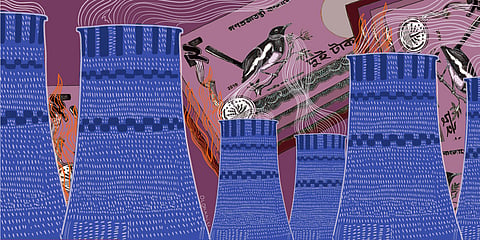Power play
(This article is part of our special series 'Rethinking Bangladesh'. You can read the editorial note to the series here.)
Stability – whether in political leadership or of power supply – has typically been short lived in Dhaka. No Bangladeshi prime minister has presided over more than one term in office, and no resident of Ganabhaban – or 'People's House', the official residence of the prime minister – has presided over surplus electricity generation until Sheikh Hasina's post-2009 rule, which continues to this day. In many ways, the breaking of these immutable rules converges in one law. It should have expired in October 2021 – but, yet again, it has not.
The Speedy Supply of Power and Energy (Special Provisions) Act 2010 has, over the course of its life, been extended on three prior occasions, and now is set to maintain its stultifying run on the country's law books till at least 2026. The special provisions were supposed to provide temporary remedies and incentives to address the gaping electricity shortfall in the country. When the law was devised in 2010, Bangladesh's electricity generation capacity was around 6600 Megawatts (MW), with the demand some 1400 MW higher. Earlier this year, the country set a record for installed generation capacity of around 25,000 MW, which on paper appears a terrific success: a developmental challenge solved neatly through an act of legislation. However, the length of the purportedly temporary act's stay on the books points to some extra-legal incentives and poses worrying consequences for Bangladesh's governance.

